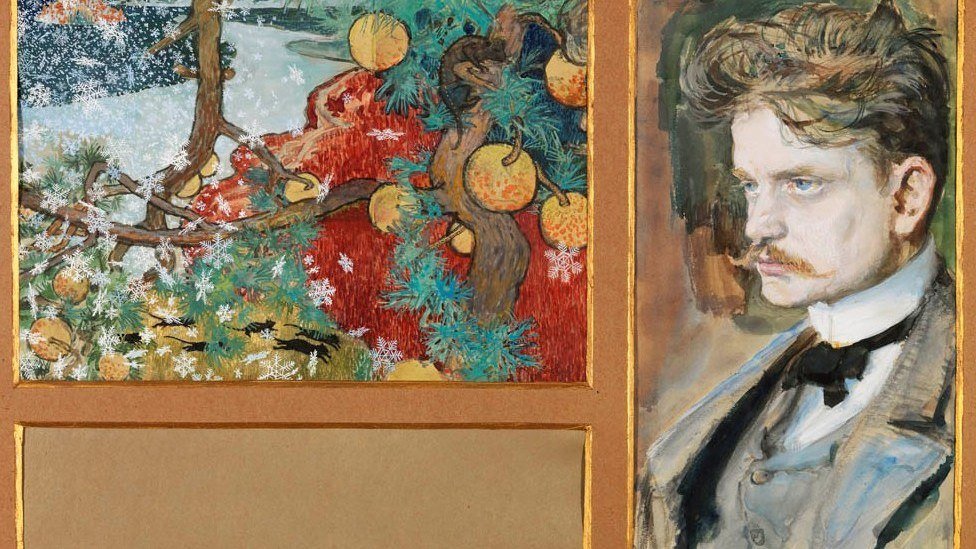Jean Sibelius’ 1913 tone poem, The Bard, Op. 64, inhabits a mysterious, desolate, and austere landscape which is reminiscent of the Fourth Symphony, composed two years earlier. In contrast with Sibelius’ other tone poems, which often relate to the Finnish folklore of the Kalevala, the brief, enigmatic work does not outline a narrative or scene. Instead, with its prominent use of the solo harp, the music evokes the poetry of the Skald, bards of the Ancient Scandinavian world.
The Bard unfolds with a magical sense of stasis and timelessness. The first measures, which draw us into the work’s haunting, atmospheric world instantly, seem to be a continuation of music already long in progress. Warm, stoic divided lines in the violas and celli and the distant rumble of timpani emerge and then break off into silence.
In its first version, The Bard was premiered in Helsinki on March 27, 1913 by the Philharmonic Society Orchestra, under the baton of the composer. A revised version was performed in 1916.
Five Great Recordings
- Sibelius: The Bard – Symphonic Poem, Op. 64, Neeme Järvi, Gothenburg Symphony Orchestra Amazon
- Osmo Vänskä and the Lahti Symphony Orchestra
- Sir Adrian Boult and the London Philharmonic Orchestra
- Paavo Berglund and the Bournemouth Symphony Orchestra
- Okko Kamu and the Lahti Symphony Orchestra
Featured Image: “Sibelius as the Composer of En saga” (1894), Akseli Gallen-Kallela


Thank you so much for writing about this piece. I love most of Sibelius’ tone poems; Pohjola, Wood Nymph (I think you have also posted about this one?), and Spring Song are my favorite. It’s a natural genre for such a creative orchestrator.
In fact I enjoy them so much I created a Spotify playlist of only his tone poems! I wanted them all in one place and I didn’t see any other such collections.
I agree with you Daniel, and thanks for your Spotify playlist. Pohjola’s Daughter and Oceanides are my favs, but I appreciate them all. Keep well
So serene and transporting. Beautiful!